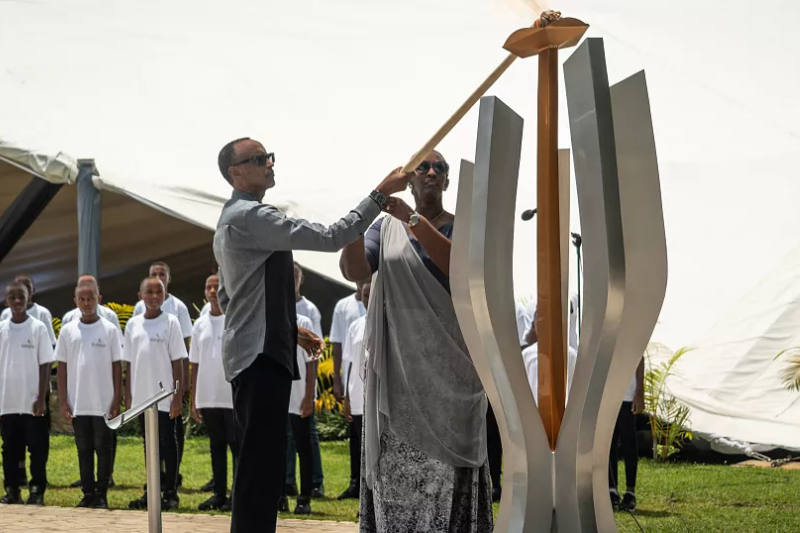Reflecting on Rwanda’s Dark Past
With the 30th anniversary of the Rwandan genocide approaching, transitional justice expert Martin Mavenjina underscores the gravity of the period between April and June 1994, describing it as a dark time in the country’s history. The genocide, which claimed an estimated 800,000 lives, mainly ethnic Tutsis, continues to have a profound impact on Rwanda and the world.
Remembering Healing and Prevention
Mavenjina emphasises the significance of commemorating the genocide not only as a moment of remembrance but also as an opportunity for victims and survivors to reflect, heal, and look towards the future. By acknowledging the atrocities of the past, Rwanda reaffirms its commitment to ensuring that such horrific events never occur again, both within the country and globally.
The debate over President Kagame’s leadership
While Rwanda has experienced relative peace since the genocide, the leadership of President Paul Kagame has been subject to scrutiny and debate. Mavenjina praises Kagame’s efforts in fostering reconciliation between the Hutu and Tutsi communities post-genocide but acknowledges concerns raised by human rights activists and opposition leaders. Accusations of oppression, silencing dissent, and alleged human rights abuses challenge the narrative of progress and reconciliation.
Keep Reading
Balancing Stability and Freedom
Supporters of Kagame argue that his firm grip on power is necessary to prevent a return to chaos and another genocide. However, Mavenjina suggests that preserving peace should not come at the expense of suppressing dissent and limiting freedoms. Calls for Kagame to loosen his grip on power and allow for greater political openness highlight the complexities of balancing stability and democratic values in post-genocide Rwanda.
Looking Ahead
As Rwanda marks 30 years since the genocide, the country finds itself at a critical juncture, grappling with its traumatic past and striving for a brighter future. The debate surrounding President Kagame’s leadership underscores the ongoing challenges and complexities of reconciliation, justice, and governance in Rwanda.
A Continuing Journey Towards Reconciliation
As Rwanda continues its journey of healing and reconciliation, the commemoration of the genocide serves as a solemn reminder of the need to confront the past, promote justice, and build a peaceful future. President Kagame’s leadership, while credited with stability and reconciliation efforts, faces scrutiny over allegations of oppression and political repression.

